Women’s Volleyball
Getting to know your U SPORTS coaches: Michelle Wood, Acadia Axewomen
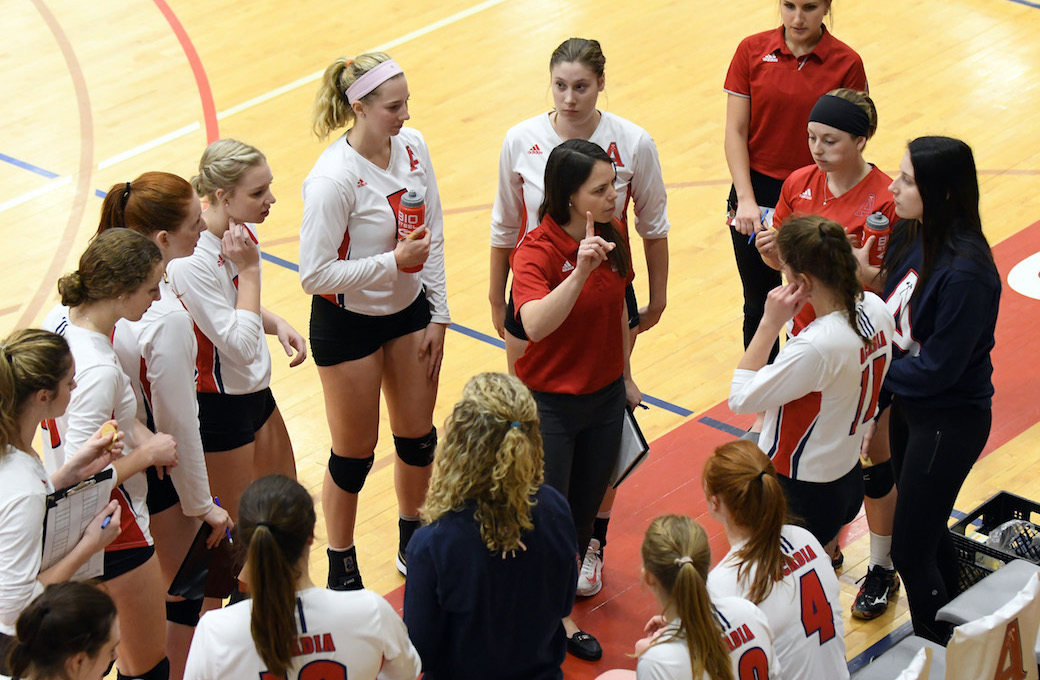

U SPORTS Staff
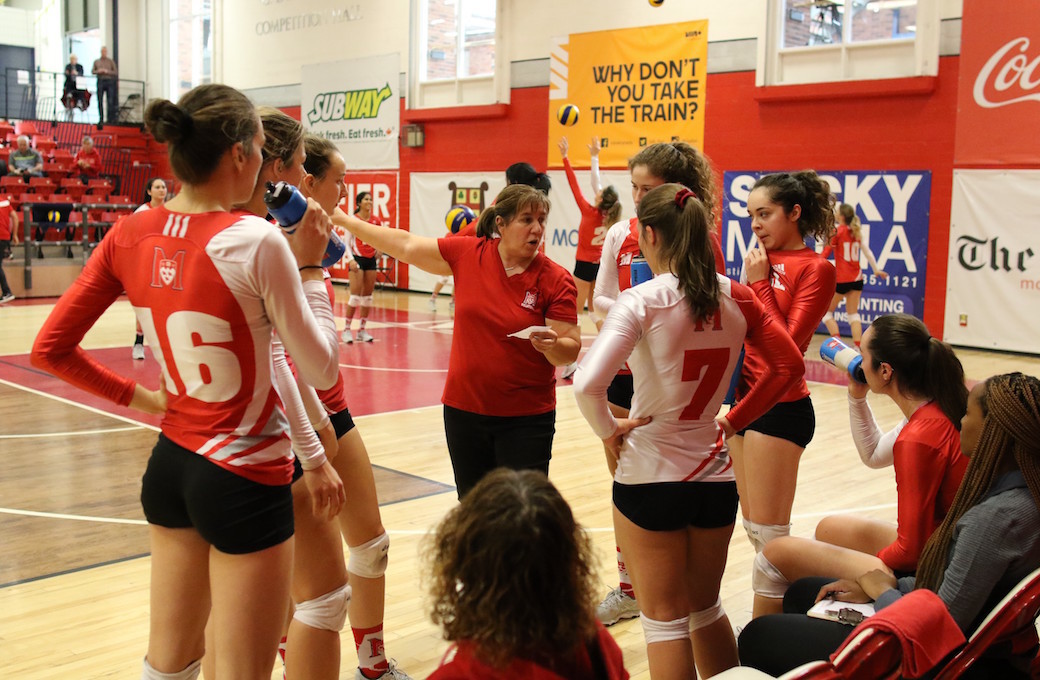
Throughout the season, U SPORTS sits down with one key athlete, coach, and staff member of each U SPORTS athletic program in our new interview series “Getting to know…”
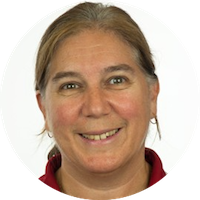
1. How did you first get involved in coaching? What was your path to your position as head coach of McGill?
I got involved in coaching primarily, for the love of the sport. I could not see myself without volleyball in my life. I played varsity volleyball while studying at Sherbrooke. I also played for the Canadian national team in Regina, where I continued my studies and started to think about coaching. At the time, there was not a lot of coaching opportunities, especially as a full-time coach. However, as a player, I found it easy to help my teammates play better as I understood the game very well. Towards the end of my athletic career, I started to coach and have not stopped since then. After completing my master’s degree, an opportunity came up with a Women in Leadership Program in Quebec, and McGill offered me the opportunity to be a full-time coach. It has been 28 years and I am still there!
2. Who are the people that have influenced you most as a coach?
When I started, I had a lot of support from Volleyball Quebec. I was very young, with little coaching experience but, a lot of experience as an athlete. While completing my undergraduate and master’s degrees in physical education, I became a Level 3 certified coach. Very few full-time job opportunities were available at the time, and I honestly never thought I would one day be working as a full-time coach. I had success with my athletes early in my coaching career though, and a door opened for me at McGill.
3. How would you describe your coaching style?
I would describe my coaching style as approachable and open. I want to be myself, and not try to imitate any of the coaches that I had played for during my athletic career. I have always tried to focus on the athletes and not on myself, nor on the results. You always try to be the best and win as much as possible, but I wanted to be respectful, to act as a facilitator, not a dictator. Through all these years, I am still trying to grow as a coach and adapt to the different generations of athletes that I have the opportunity to work with.
4. Which coach do you admire the most, and why?
I have a lot of respect for Michel Gagnon – an extremely successful coach in Quebec during the 1980s. I also have to mention Gaétan Morin, who developed me as an athlete to succeed at the international level. For those who know me, it was not an easy road since I was quite a short player for that level. Another individual who comes to mind is Lorne Sawula – head coach of the national senior team – who has had a great impact on my international career. They were all supportive, and factors in my success as a coach. Last but not least, I admire Glen Hoag, a successful coach that I respect tremendously and who’s coaching philosophy had an impact on me.
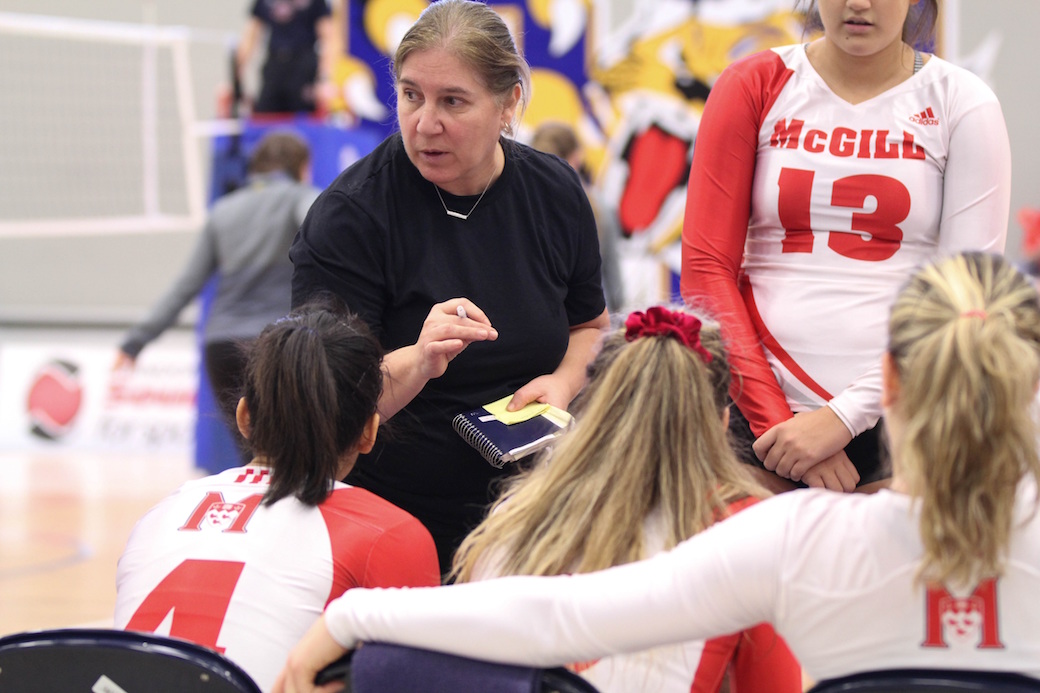
5. What is the most “out-of-the-box” thing you’ve done as a coach?
In my early years, I left an athlete behind because she was late for the team bus heading out on a road trip. As a team, we could not wait any longer, so we left without her. No one was ever late again after that day!
6. What is your greatest coaching moment or achievement?
My greatest achievement is certainly, the bronze medal won by McGill at the 2012 national championships. It was the team’s best-ever result! The players, for some reason, seemed happier for me than for themselves, even though my goal was to do it for them. I should also mention the many emotional moments I have had when my seniors graduate and return to show appreciation for the program that they were a part of for many years. A video was prepared by my players and presented to me at the end of my 25th season. That was a great moment I will never forget.
7. What’s the best advice you can give to an athlete and/or athlete’s parent?
I like to present my objectives for both the program and for the athlete joining the program. I also like to stress the importance of combining education – at one of the best universities – with developing as an athlete. In the end, my hopes are that it is an enriching experience, so that the athlete remains in love with the sport.
8. How have you changed as a coach over time? What principles/values, etc. have remained the same?
You have to grow with the sport. The game changes, and you have to change the way you are teaching it. I certainly do not do the same drills I was doing even 10 years ago. The athletes are also different. You have to progress with them. You have to adapt to them, and not have them adapt to you. Passion for the sport should also remain on top of the list. If you are passionate, and invest the time and effort, good things will happen.
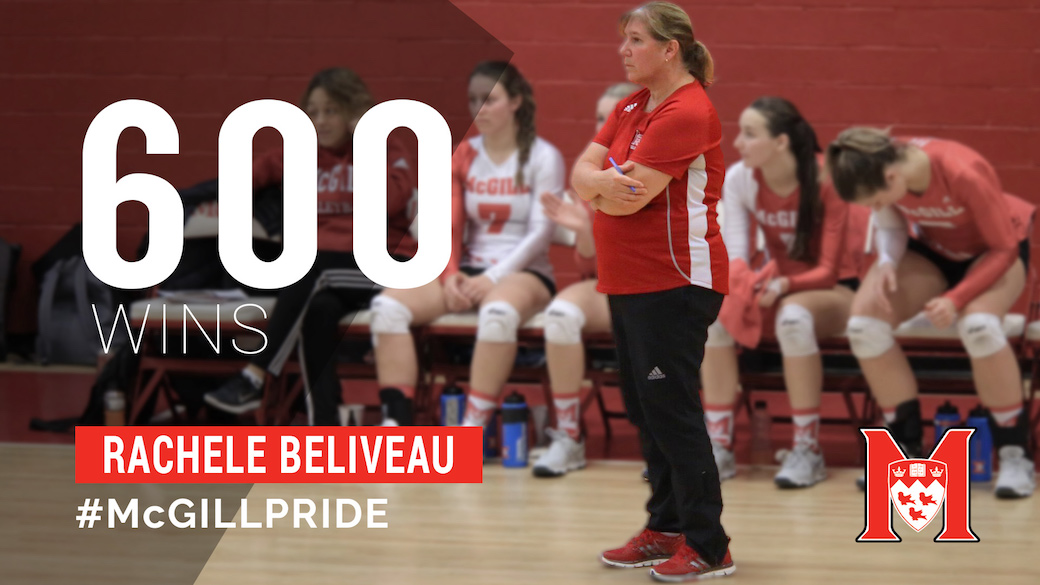
9. What do you enjoy doing when you’re not in coaching mode?
I want to spend as much time as possible with my family. When my kids were young it was easy to not bring my work home with me. When you arrive home after a long day, your focus should be on them. Now that they are older and becoming independent, I have to develop other interests to work on. The coaching profession can be all-encompassing, so when I am not coaching I like to relax and do activities that hopefully make me forget about work for a few hours.
10. What’s the most embarrassing thing that’s ever happened to you as a coach?
About 10 years ago, McGill was hosting a league game. We prepared the pre-game setup at our gym as usual. However, when installing the net, the post fell right through the hole in the floor. This required a major repair job. We had to scramble to free up our other gym and set up there to host the game. Everyone – including the spectators – had to be moved. Then, after the game started in our back-up gym, the net broke again at the end of the first set. We had to do the setup all over again, and we eventually lost that game.
Another event that comes to mind was about 15 to 20 years ago, when our team was playing a semifinal at the Université de Montréal. It was around the end of the first set, and we were leading by about seven points when the electricity went off. After waiting for an hour, a decision was made to move venues and play the rest of the game at McGill – which was about 20 minutes away by car. However, since we were changing venues, the officials advised us that the match had to start over from the beginning. Well, we won the first two sets, and had they counted the first set from the original game, we would have beaten the first-place Carabins. Sadly, we lost the next three, and officially lost by a score of 3-2. That was a tough moment I will never forget.
Women’s Volleyball
U SPORTS Staff
